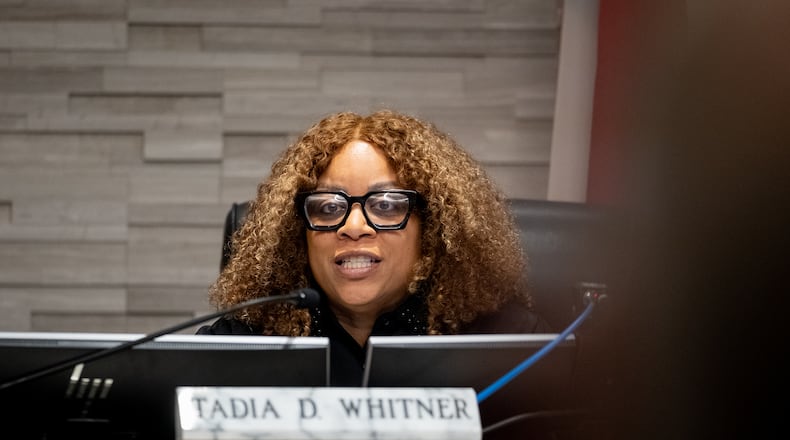Gwinnett County Superior Court Judge Tadia Whitner on Wednesday scheduled an Oct. 17 hearing for a county man’s lawsuit seeking to invalidate the newly approved city of Mulberry.
Whitner ordered Stephen Hughes, a retiree who lives in the new city’s boundaries, and Gwinnett County’s lawyers to appear in court at 10 a.m. that day. Hughes sued the county last month seeking a ruling that the charter for Mulberry is unconstitutional and the county is prohibited from participating in the new city’s transition process. Gwinnett County has taken Hughes’ side.
Georgia Attorney General Chris Carr filed a notice last week that he intends to argue against Hughes. Citizens for Mulberry, a special interest group that campaigned for the new city, and its president, Michael Coker, have also joined the case to oppose Hughes.
Voters in May ratified the new city’s charter, setting in motion a timeline that includes city council elections in November and incorporation on Jan. 1 of next year. The city would be Gwinnett’s largest by land area and second-largest by population, with about 41,000 residents in a 26-square-mile swath of the county’s northeast that includes Little Mulberry Park and the affluent Hamilton Mill subdivision.
Hughes last month filed a separate lawsuit against Gwinnett’s elections board and supervisor, seeking to halt the city council election. Carr, Citizens for Mulberry and Coker are also opposing Hughes in that lawsuit. Both sides asked Whitner on Wednesday for a Sept. 13 hearing date in that case, according to court filings.
Mulberry’s charter prohibits the city from imposing its own property tax. The charter states it can only be changed by a voter referendum, although state law allows city councils to amend charters without ballot questions. Hughes argues the charter violates the city’s home rule powers under the Georgia constitution.
Mulberry will provide planning and zoning, code enforcement and stormwater management services. It was created in response to a developer’s proposal for hundreds of apartments next to Seckinger High School. The proposal stalled in the face of community opposition and has not cleared the Gwinnett planning commission. There is no multifamily housing in Mulberry’s boundaries.
Hughes has said he is concerned the city will ultimately impose a tax and prohibit him from keeping bees. His opponents claim developers who want to build in Mulberry are funding his lawsuits. Hughes declined to explain where the money is coming from, calling the issue immaterial.
“Vladimir Putin could be funding this operation,” Hughes told The Atlanta Journal-Constitution earlier this month. “That’s not the issue. The issue is, at the end of the day, that they give us a charter to vote on that’s constitutional.”
Hughes also sued the state of Georgia last month in Fulton County Superior Court, seeking to declare Mulberry unconstitutional and prevent Gov. Brian Kemp from appointing a transition team for the new city. Kemp subsequently created the transition team, appointing State Sen. Clint Dixon, state Reps. Chuck Efstration and Derrick McCollum, Lawrenceville City Manager Chuck Warbington and Hamilton Mill HOA President Jerry Hanes.
About the Author
Keep Reading
The Latest
Featured




